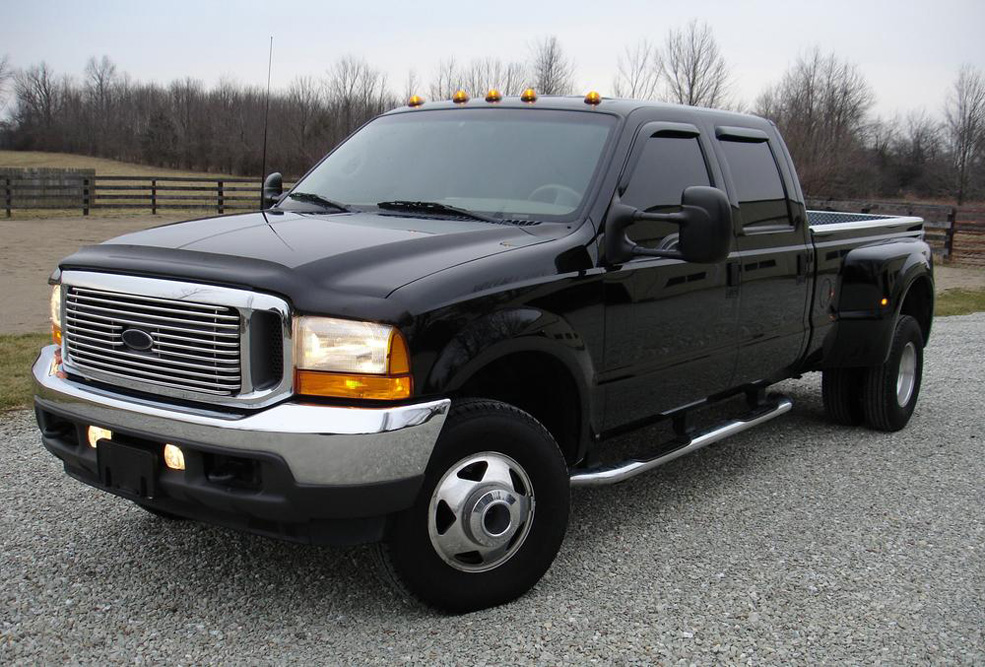The Evolution of Chevrolet Trucks: A Rich Legacy from 1947 to Today
Explore the comprehensive history and evolution of Chevrolet trucks from 1947 to today. Discover how these vehicles transformed from simple workhorses into modern icons of style, power, and innovation, maintaining a legacy of reliability and performance that transcends generations. This detailed overview highlights key models, technological advancements, and design changes that have defined Chevrolet’s commitment to excellence in the truck industry.

The Evolution of Chevrolet Trucks: A Rich Legacy from 1947 to Today
Since their inception with the groundbreaking Chevrolet Advance Design series in 1947, Chevrolet trucks have established a formidable reputation for durability, performance, and innovation. Over the decades, these vehicles have evolved dramatically, reflecting technological advancements, shifting consumer preferences, and a commitment to excellence. Today, Chevrolet trucks are recognized worldwide as reliable, powerful, and versatile vehicles that cater to a broad spectrum of drivers—fromwork professionals to adventure enthusiasts. This comprehensive history explores how Chevrolet trucks have transformed from simple workhorses into modern icons of performance and style.
The story begins in 1947 with the launch of the Chevrolet Advance Design series. These trucks were designed for practicality, durability, and straightforward reliability, catering primarily to farmers, construction workers, and small business owners. With their robust construction, simple mechanical design, and modest styling, they quickly gained popularity across the United States for both personal and commercial use. The Advance Design trucks set the foundation for Chevrolet's reputation in the truck market, emphasizing strength and practicality over aesthetics.
As the decades progressed, Chevrolet introduced several innovative updates, reflecting the changing technological landscape and consumer demands. The 1950s and 1960s saw the introduction of more refined designs, improved engine options, and increased comfort features. The 1970s and 1980s witnessed a shift towards more modern styling, increased safety, and fuel efficiency, adapting to the energy crises and rising regulations. Chevrolet trucks kept pace with these changes, building a loyal customer base that appreciated their reliability and performance across diverse conditions and uses.
The biggest turning point in Chevrolet's truck history came in the early 2000s, with a complete redesign aimed at blending utility with style and advanced technology. This period marked the arrival of vehicles like the Silverado series, which quickly gained recognition for their superior capability, comfort, and advanced features. Notably, the Silverado SS, introduced during this era, became an icon of high performance. Despite its modest sales volume, the Silverado SS was celebrated for its raw power and unique appeal, standing out amid more utilitarian models.
The Silverado SS was particularly praised for its exceptional performance metrics, capable of accelerating from 0 to 60 mph in roughly 3 seconds—an impressive feat for a pickup truck. Its initial retail price hovered around $40,000, making it a premium offering for performance-oriented drivers. In 2006, Chevrolet rolled out minor updates, offering many features as optional extras to reduce costs and broaden the vehicle’s appeal. These updates helped boost sales, especially among those who valued high performance combined with modern comfort and technology. The Silverado SS’s reputation as a powerful, stylish, and capable truck cemented its place in the minds of truck enthusiasts and casual drivers alike.
Modern Silverado models, including the Silverado SS, have seen their price points reduced, with the base model starting at approximately $28,400. Upgrading to higher trims or more extensive packages can push the price up to $32,400 for a double cab variant and as high as $36,800 for crew cab configurations. These pricing strategies were intended to make Chevrolet trucks more accessible to a broader audience, fostering increased sales and market competitiveness. Moreover, customer demands for luxury features and premium trims prompted Chevrolet to develop options like leather interiors, advanced infotainment systems, and high-end safety features, ensuring that the Silverado lineup caters to a diverse spectrum of preferences.
Throughout its history, Chevrolet trucks have demonstrated remarkable resilience and capacity for reinvention. From their humble beginnings as utilitarian workhorses to their current status as stylish, high-performance vehicles, Chevrolet trucks have consistently adapted to meet the evolving needs of consumers. The brand’s commitment to innovation, affordability, and quality has kept it at the forefront of the automotive industry, securing its legacy among truck enthusiasts and everyday drivers alike. Whether for work or leisure, Chevrolet trucks continue to symbolize strength, dependability, and forward-thinking design.
In conclusion, the journey of Chevrolet trucks from 1947 onwards exemplifies a blend of tradition and innovation. Their evolution reflects changes in technology, design, and consumer demand, positioning Chevrolet as a leader in the competitive truck market. With ongoing updates and an unwavering focus on quality and performance, Chevrolet trucks are poised to remain a trusted choice for generations to come. From the early Advance Design models to the modern Silverado series, Chevrolet’s legacy of excellence endures, making their trucks a symbol of American ingenuity and resilience.





